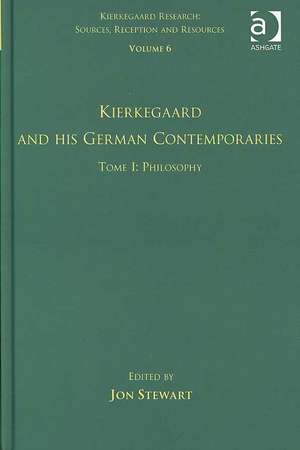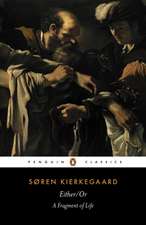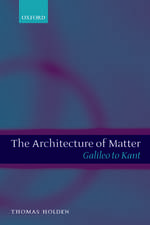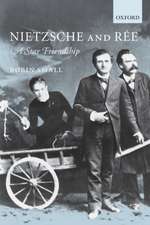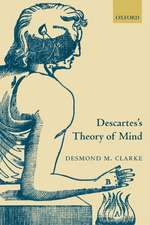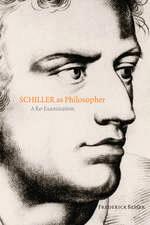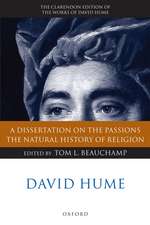Volume 6, Tome I: Kierkegaard and His German Contemporaries - Philosophy: Kierkegaard Research: Sources, Reception and Resources
Editat de Jon Stewarten Limba Engleză Hardback – 28 aug 2007
| Toate formatele și edițiile | Preț | Express |
|---|---|---|
| Paperback (1) | 469.34 lei 6-8 săpt. | |
| Taylor & Francis – 27 feb 2017 | 469.34 lei 6-8 săpt. | |
| Hardback (1) | 1054.71 lei 6-8 săpt. | |
| Taylor & Francis – 28 aug 2007 | 1054.71 lei 6-8 săpt. |
Din seria Kierkegaard Research: Sources, Reception and Resources
-
 Preț: 325.78 lei
Preț: 325.78 lei -
 Preț: 386.78 lei
Preț: 386.78 lei - 18%
 Preț: 1055.21 lei
Preț: 1055.21 lei - 18%
 Preț: 1065.78 lei
Preț: 1065.78 lei - 26%
 Preț: 820.71 lei
Preț: 820.71 lei - 18%
 Preț: 1064.19 lei
Preț: 1064.19 lei - 18%
 Preț: 1060.87 lei
Preț: 1060.87 lei - 25%
 Preț: 826.15 lei
Preț: 826.15 lei - 18%
 Preț: 1065.96 lei
Preț: 1065.96 lei -
 Preț: 469.34 lei
Preț: 469.34 lei - 18%
 Preț: 1056.95 lei
Preț: 1056.95 lei - 15%
 Preț: 703.76 lei
Preț: 703.76 lei - 18%
 Preț: 1117.49 lei
Preț: 1117.49 lei - 18%
 Preț: 1054.71 lei
Preț: 1054.71 lei - 18%
 Preț: 1116.27 lei
Preț: 1116.27 lei -
 Preț: 381.28 lei
Preț: 381.28 lei - 26%
 Preț: 765.59 lei
Preț: 765.59 lei - 25%
 Preț: 825.63 lei
Preț: 825.63 lei - 26%
 Preț: 820.32 lei
Preț: 820.32 lei -
 Preț: 469.34 lei
Preț: 469.34 lei - 18%
 Preț: 1061.81 lei
Preț: 1061.81 lei - 18%
 Preț: 1062.31 lei
Preț: 1062.31 lei - 18%
 Preț: 1059.18 lei
Preț: 1059.18 lei - 18%
 Preț: 1057.57 lei
Preț: 1057.57 lei - 18%
 Preț: 1057.75 lei
Preț: 1057.75 lei - 18%
 Preț: 1057.89 lei
Preț: 1057.89 lei -
 Preț: 489.26 lei
Preț: 489.26 lei - 30%
 Preț: 768.82 lei
Preț: 768.82 lei - 18%
 Preț: 1116.77 lei
Preț: 1116.77 lei - 18%
 Preț: 1112.03 lei
Preț: 1112.03 lei - 18%
 Preț: 1067.35 lei
Preț: 1067.35 lei - 18%
 Preț: 1056.00 lei
Preț: 1056.00 lei - 18%
 Preț: 1058.65 lei
Preț: 1058.65 lei - 31%
 Preț: 767.80 lei
Preț: 767.80 lei - 18%
 Preț: 1064.98 lei
Preț: 1064.98 lei - 25%
 Preț: 769.44 lei
Preț: 769.44 lei - 18%
 Preț: 1058.86 lei
Preț: 1058.86 lei - 26%
 Preț: 820.32 lei
Preț: 820.32 lei - 25%
 Preț: 823.17 lei
Preț: 823.17 lei - 26%
 Preț: 821.94 lei
Preț: 821.94 lei - 28%
 Preț: 821.53 lei
Preț: 821.53 lei - 18%
 Preț: 1060.25 lei
Preț: 1060.25 lei - 18%
 Preț: 1055.84 lei
Preț: 1055.84 lei - 26%
 Preț: 850.73 lei
Preț: 850.73 lei - 25%
 Preț: 854.26 lei
Preț: 854.26 lei
Preț: 1054.71 lei
Preț vechi: 1286.24 lei
-18% Nou
Puncte Express: 1582
Preț estimativ în valută:
201.81€ • 211.84$ • 167.51£
201.81€ • 211.84$ • 167.51£
Carte tipărită la comandă
Livrare economică 11-25 aprilie
Preluare comenzi: 021 569.72.76
Specificații
ISBN-13: 9780754661825
ISBN-10: 0754661822
Pagini: 398
Ilustrații: black & white illustrations
Dimensiuni: 156 x 234 x 22 mm
Greutate: 0.45 kg
Ediția:New ed
Editura: Taylor & Francis
Colecția Routledge
Seria Kierkegaard Research: Sources, Reception and Resources
Locul publicării:Oxford, United Kingdom
ISBN-10: 0754661822
Pagini: 398
Ilustrații: black & white illustrations
Dimensiuni: 156 x 234 x 22 mm
Greutate: 0.45 kg
Ediția:New ed
Editura: Taylor & Francis
Colecția Routledge
Seria Kierkegaard Research: Sources, Reception and Resources
Locul publicării:Oxford, United Kingdom
Cuprins
Contents; Preface; Baader: the centrality of original sin and the difference of immediacy and innocence, Peter Koslowski; Karl Bayer: Kierkgaards's attempt at social philosophy, J. Michael Tilley; Feuerbach: a malicious demon in the service of Christianity, István Czakó; I.H. Fichte: philosophy as the most cheerful form of service to God, Harmut Rosenau; J.G. Fichte: from transcendental ego to existence, David J. Kangas; Hegel: Kierkegaard's reading and use of Hegel's primary texts, Jon Stewart; Herder: a silent background and reservoir, Johannes Adamsen; Kant: a debt both obscure and enormous, Ronald M. Green; Lichtenberg: Lichtenberg's aphoristic thought and Kierkegaard's concept of the 'subjective existing thinker', Smail Rapic; Schelling: a historical introduction to Kierkegaard's Schelling; Tonny Aagaard Olesen; Schopenhauer: Kierkegaard's later encounter with his opposite, Simonella Davini; Schubert: Kierkegaard's reading of Gotthilf Heinrich Schubert's philosophy of nature, Stefan Eganberger; Trendelenberg: an ally against speculation, DarÃo González; Werder: the influence of Werder's lectures and logik on Kierkegaard's thought, Jon Stewart; Index of persons; Subject index.
Notă biografică
Jon Stewart is Associate Research Professor in the Søren Kierkegaard Research Centre, University of Copenhagen, Denmark.
Descriere
This first tome treats the German philosophical influences on Kierkegaard. The dependence of Danish philosophy on German philosophy is beyond question. In a book review in his Hegelian journal Perseus, the poet, playwright and critic, Johan Ludvig Heiberg (1791-1869) laments the sad state of philosophy in Denmark, while lauding German speculative philosophy. Moreover, Kierkegaard's lifelong enemy, the theologian Hans Lassen Martensen (1808-84) claims without exaggeration that the Danish systems of philosophy can be regarded as the "disjecta membra" of earlier German systems. All of the major German idealist philosophers made an impact in Denmark: Kant, Fichte, Schelling, and most significantly, Hegel. Kierkegaard was widely read in the German philosophical literature, which he made use of in countless ways throughout his authorship.
